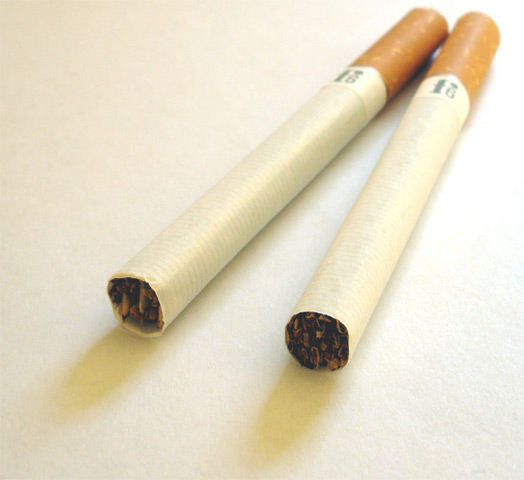Topics
9/11
Acquisition Reform
Advertising
Alaway
Alcohol
Ale
Allergies
Antisemitism
Barack H. Obama
Beer
Billiards
Biology
Books
Budget
Bureaucracy
California
Capitalism
Carbohydrates
Carcinogen
CDC
Chemical Warfare
Chemistry
Chemophobia
Chirality
Climate Science
Colonial Pines
Computers
Conservation Laws
Constitution
Consumerism
Cosmology
CPT Invariance
Creationism
Customer Service
Daesh
David Irving
Dead End
Defense
Dinosaurs
Disasters
Economic
Energy
English
Ethics
Evolution
Fluoride
Food
FTL
Garden Care
George W. Bush
Gerlich and Tscheuschner
GISS
Glaciers
GMOs
HadCRU
Haiti
Health
Himalayan Rock Salt
HITRAN
Holocaust Denial
Home Brewing
How It Looks From Here
html
Humor
Information
Infrared Spectroscopy
IPCC
Iran
ISIS
Islam
Islamophobia
Israel
Ketotifen Fumarate
Law
Lawn Care
Leibniz
Lisbon
Magnetism
Math
Medco
Medicine
Modeling
Molecules
Monopoly
Monsanto
Naphazoline hydrochloride
Neutrinos
Nietzsche
NIH
NIST
Noether's Theorem
Non-hazardous
Norton Ghost
Nuclear Warfare
Oil
Oil Spill
Olopatadine hydrochloride
Opinion
Orson Scott Card
Parody
Pataday
Patanol
Pesticides
Pheneramine maleate
Physics
Plumbing
Politics
Poll
Pope
POTUS
Prescriptions
Prop 65
Psychology
Quantum Mechanics
Quiz
Racism
Radiative Transfer
Relativity
Religion
Respiration
Senior Housing
Signs
Smoking
Specific Gravity
Statistics
Stock Market
Sugars
Sun Tzu
Surface Temperature
Surgeon General
Symantec
Target
Temperature
Terrorism
The Final Solution
The Holocaust History Project
Thermodynamics
Time
Trains
Units
Voltaire
von Clausewitz
Weather
White House
Wine
Yeast
Friday, February 26, 2010
Molecules and Radiation III: Vibration, Dipoles, and Ro-Vibrational Spectra
This post is part of a primer on infrared spectroscopy and global warming. The previous post looked at the vibrational modes of several molecules including HCl and several molecules of atmospheric interest. This post discusses how these modes relate to infrared absorption and uses HCl as an example.
Friday, February 19, 2010
OPINION: Don't Call Climate Doubters Deniers
I am friendly with and love people who doubt the reality of climate change. The same cannot be said for those who "doubt" the reality of the Final Solution. Lately it has become commonplace to refer to the former as "deniers," but the implicit connection to the latter offends me. To understand why, I think it is useful to look at these groups of people.
Friday, February 12, 2010
Molecules and Radiation II: Molecular Vibration, Rotation, and Translation
This post is part of a primer on infrared spectroscopy and global warming. The previous post starts the process of looking at the interaction between infrared radiation and molecules and discusses the degrees of freedom of molecules and the Born-Oppenheimer approximation. The result of the previous post is that for the purposes of IR spectroscopy, one can focus on the motion of the atomic nuclei and separate them from the electronic degrees of freedom of a molecule.
Figure Source
There are 3N nuclear degrees of freedom for a molecule that has N nuclei. For the HCl molecule that means there are 6 degrees of freedom.
Figure Source
There are 3N nuclear degrees of freedom for a molecule that has N nuclei. For the HCl molecule that means there are 6 degrees of freedom.
Wednesday, February 10, 2010
Does Secondhand Smoke Kill?
By now everyone knows that smoking can kill, but does secondhand smoke really kill and how do we know that?
The National Institute of Health (NIH) has a good resource on Secondhand Smoke, and it is perhaps a good place to start. The NIH starts with a very general description from the National Cancer Institute:
The National Institute of Health (NIH) has a good resource on Secondhand Smoke, and it is perhaps a good place to start. The NIH starts with a very general description from the National Cancer Institute:
You don't have to be a smoker for smoking to harm you. You can also have health problems from breathing in other people's smoke. Secondhand smoke is the combination of smoke that comes from the burning end of a cigarette, cigar or pipe and the smoke exhaled by the smoker. Secondhand smoke contains more than 50 substances that can cause cancer. Health effects of exposure to secondhand smoke include lung cancer, nasal sinus cancer, respiratory tract infections and heart disease. There is no safe amount of secondhand smoke. Children, pregnant women, older people and people with heart or breathing problems should be especially careful.
Sunday, February 7, 2010
Molecules and Radiation I: Molecular Structure
This post is part of a primer on infrared spectroscopy and global warming. The previous post starts the process of looking at the interaction between infrared radiation and matter and discusses black-bodies and relationship between temperature and infrared radiation. This post goes further and looks at how gas phase molecules interact with infrared radiation.
For a molecule to absorb radiation, several conditions must hold. First, energy must be conserved: if the molecule absorbs energy from a photon, the molecule must be able to store that energy in some manner.
Subscribe to:
Comments (Atom)





 I
I